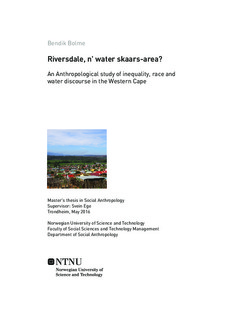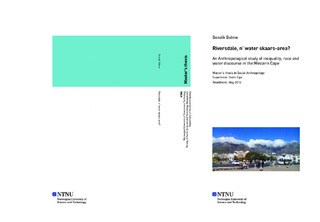| dc.description.abstract | This paper looks at the ways in which race and inequality affects the lives of Western Cape South Africans as well as how these social factors affect people’s dispositions towards water consciousness in an area that is perceived as vulnerable to climate change.
Using mainly ethnographic fieldwork and the method of participant observation as the basis for its empirical evidence, the examples of informants actions and ways of talking are not random or anecdotal, but are examples of patterns of social interaction that repeats itself time and again and is, in my opinion, typical for the social structures of this society. By analyzing this evidence in the light of social theory on identity and group negotiation, social inequality and class, as well as rights constructs, discourse analysis and theories on social conflict over water, it aims to show what kind of social structures are shaping the lives of South Africans in the Western Cape, and what effects, if any, these structures have on the actors’ consciousness and discourse on water.
Conclusively it finds that social situation does indeed influence dispositions towards water
and that we can see this in the interactions, and prevailing discourses that we find amongst the different social groups of Riversdale. | nb_NO |

